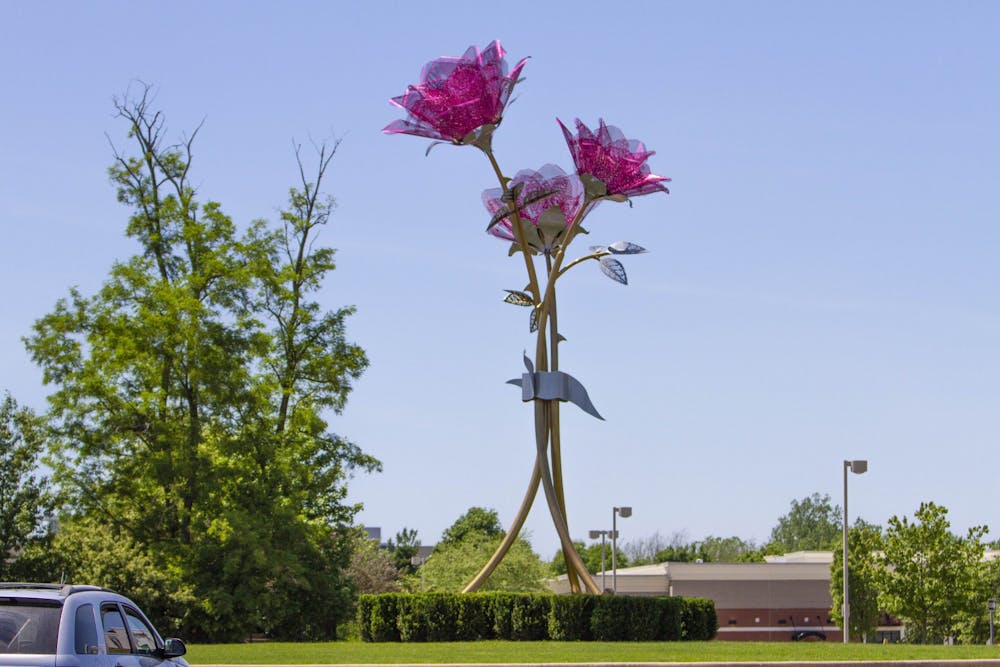Yesterday, James Brainard, the mayor of Carmel, Indiana, said he planned to sue the city of Minneapolis for its negligence in continuing to employ Derek Chauvin, the former police officer who killed George Floyd.
Brainard said the civil unrest sparked in Minneapolis directly increased costs of defense measures as Carmel addressed threats of rioting and looting, and Minneapolis should compensate Carmel for these expenses.
A few hours later, Brainard took back his plan, saying while he still believes Minneapolis’ negligence is to blame, he would put his plans to sue “on hold.”
Brainard’s sentiments of holding authorities accountable for police brutality are a step in the right direction, but his approach to addressing the issue is completely off-base. By assigning blame for the protests solely to Minneapolis and implying that Carmel should gain from this national tragedy, Brainard shows a lack of self-awareness.
Rather than demanding a refund, Brainard should take this opportunity to reevaluate the state of his own city, an affluent suburb that turns a blind eye to its own racial discrimination and the extreme wealth disparity between its residents and those of surrounding towns.
In the past few years, Brainard spent $6 million on an outdoor ice rink and winter market, over $2 million on multiple roundabout sculptures and in 2020, went more than $18 million over budget on a luxury hotel. Due to projects like these, Carmel is $1.4 billion in debt.
Brainard has no right to sue Minneapolis, a city that has suffered far more from these protests than Carmel, because he was required to allocate funds for protecting his city’s residents — one of local government's core functions — rather than building them a giant floral roundabout decoration.
His plan only gets more nonsensical considering any money Carmel gains from Minneapolis would come from the pockets of its taxpayers, about 20% of whom are black, not just the policemen or government authorities he blames for this crisis.
Brainard’s plan to sue implies that Minneapolis is to blame for the civil unrest that has swept the nation, while in reality, George Floyd’s death was the spark that ignited a country already riddled with corrupt police officers and racism. This includes Carmel.
While only 2.7% of Carmel’s population is black, black drivers account for over one-third of traffic tickets, according to a 2019 study.
When asked about the study, Brainard denied that racial bias contributed to these numbers, claiming that more black drivers pass through Carmel during the day. However, the researchers found that this daytime number only increases the percentage of black people from 2.7% to around 6%. Brainard declined to comment on the updated statistic.
To Brainard's credit, Carmel has taken steps to reduce racial discrimination in the past, including police bias training and an early adoption of body cameras. But these measures do not absolve us of the responsibility of self-reflection. There is clearly racial discrimination present in Carmel, not just Minneapolis, and Brainard seems content looking the other way.
Brainard’s plan made me particularly angry because I grew up in Carmel. My parents were attracted to the roundabout-filled city due to its award-winning schools, but were hesitant to move there because of Carmelites’ reputations of being snobby, entitled and rude. Carmel is basically seen as the real-life equivalent of Eagleton, Leslie Knope’s ultra-rich nemesis town in the show “Parks and Recreation.”
Carmel is surely a very nice place to live, and the stereotypes of wealth don’t apply to everyone. There are still people who depend on Carmel schools for food each day and residents who experience homelessness, but you'd never know that from visiting. Poverty is rare, and the 3.5% of the population that experience it are well-hidden.
While there are definitely exceptions, the majority of Carmel citizens exist in an ignorance-inducing bubble of wealth and privilege. Many of my friends from high school were oblivious to anything other than first-world problems.
There is a relatively large Asian population in this city, but 84.1% of Carmel is saturated with white privilege, and a larger percentage has benefited from wealth. This time of national unrest is the perfect opportunity for those of us who have benefited from these privileges, in Carmel or elsewhere, to give back.
An overwhelming majority of people in Carmel cannot understand the struggle that black people face daily. As a white woman, I know that I, too, will never understand this struggle. But we can still help, and that starts with speaking out against our mayor’s clear lack of understanding of what these protests are really about.
I implore the citizens of Carmel to use this time in America’s history to become more aware. Just because our mayor maintains the stereotypes that we are all wealthy, entitled and oblivious doesn’t mean we have to.
As people who have benefited from privilege, the worst thing the citizens of Carmel can do is stay silent and pretend they are not complicit in this society that has maintained systematic racism, brutality and inequality well into the 21st century. In fact, it is precisely because of this privilege that we must act.
If you are reading this, please continue working to become more informed about these issues. If you have the means to help, please donate to Black Lives Matter, a bail fund or a different fund that is helping. Consider attending a peaceful protest or speaking up on social media.
We cannot control the actions of our mayor, but we can control our own. Make yours count.





